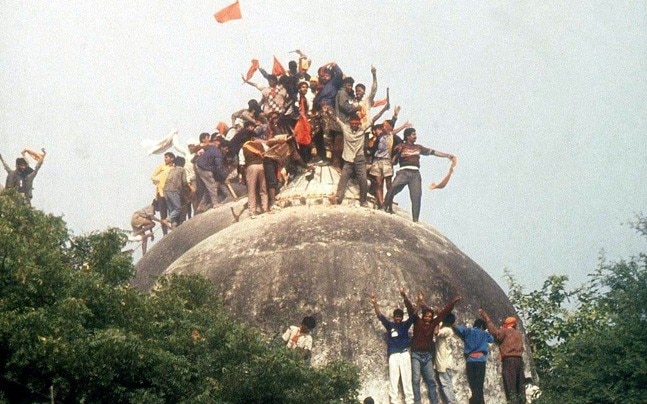The Supreme Court on Thursday asked the mediation panel set up to settle the Babri Masjid-Ram Mandir dispute to inform the court of the status of mediation by 18 July.
The court further said that if the panel’s report indicates that the dispute cannot be solved through mediation, the matter will be heard by the apex court on a day-to-day basis starting 25 July.
Rajendra Singh, survivor of Gopal Singh Visharad, an original claimant to the dispute who filed a title suit way back in 1950, had moved the Supreme Court on Tuesday, July 9, seeking an early hearing. He said the mediation was making no headway and asked the Chief Justice of India (CJI) to stop mediation and start adjudication on the appeals pending since the past eight years in the Supreme Court.
The three-member mediation panel is led by retired Supreme Court judge FMI Kalifulla and also comprises Hindu religious leader Ravi Shankar and senior advocate Sriram Panchu.
The panel was set up on March 8 by a Constitution Bench of the Supreme Court for exploring possibilities of an amicable settlement to the land dispute. The court had ordered that the mediation proceedings shall be kept confidential with no reporting of the said proceedings to be published either in the print or in the electronic media.
At the time, the Uttar Pradesh government had opposed the idea. The Nirmohi Akhara and Sunni Waqf Board, among the number of parties in the dispute, had agreed.
The Babri Masjid in Ayodhya was razed to the ground on December 6, 1992, by extremists Hindus, claiming that it was built on the site of a temple destroyed by Muslim rulers. The demolition of the medieval mosque, which was constructed under the rule of the first Mughal Emperor Babar, triggered religious riots in many parts of India that resulted in the death of more than 1000 people.
The dispute over the land has been going on for several decades, with both Hindu and Muslim groups claiming their right to it.
Related
Shaik Zakeer Hussain is the Founder and Editor of The Cognate.












































